When I graduated college in 2008, even our commencement speaker talked about how moving back in with your parents is nothing to be ashamed of. I sat there thinking well that certainly can't be a good sign. Since I had no aspirations and my girlfriend was moving to Chicago, I figured why not follow her. I had been there a few times and there were no jobs in Michigan. We found a cheap apartment near her law school and I started job hunting.
After a few weeks applying to every job on Craigslist, I landed an odd job working for an Apple Authorized Repair Center. The store was in a strip mall in the suburbs of Chicago with a Dollar Store and a Chinese buffet next door. My primary qualifications were that I was willing to work for not a lot of money and I would buy my own tools. My interview was with a deeply Catholic boss who focused on how I had been an alter boy growing up. Like all of my bosses early on, his primary quality was he was a bad judge of character.
I was hired to do something that I haven't seen anyone else talk about on the Internet and wanted to record before it was lost to time. It was a weird program, a throwback to the pre-Apple Store days of Apple Mac support that was called AppleCare Dispatch. It still appears to exist (https://www.apple.com/support/products/mac/) but I don't know of any AASPs still dispatching employees. It's possible that Apple has subcontracted it out to someone else.

AppleCare Dispatch
Basically if you owned a desktop Mac and lived in certain geographic areas, when you contacted AppleCare to get warranty support they could send someone like me out with a part. Normally they'd do this only for customers who were extremely upset or had a store repair go poorly. I'd get a notice that AppleCare was dispatching a part, we'd get it from FedEx and then I'd fill a backpack full of tools and head out to you on foot.
While we had the same certifications as an Apple Genius, unlike the Genius Bar we weren't trained on any sort of "customer service" element. All we did was Mac hardware repairs all day, with pretty tight expectations of turnaround. So how it worked at the time was basically if the Apple Store was underwater with in-house repairs, or you asked for at-home or the customer was Very Important, we would get sent out. I would head out to you on foot with my CTA card.
That's correct, I didn't own a car. AppleCare didn't pay a lot for each dispatch and my salary of $25,000 a year plus some for each repair didn't go far in Chicago even in the Great Recession. So this job involved me basically taking every form of public transportation in Chicago to every corner of the city. I'd show up at your door within a 2 hour time window, take your desktop Mac apart in your house, swap the part, run the diagnostic and then take the old part with me and mail it back to Apple.
Apple provided a backend web panel which came with a chat client. Your personal Apple ID was linked with the web tool (I think it was called ASX) where you could order parts for repairs as well as open up a chat with the Apple rep there to escalate an issue or ask for additional assistance. The system worked pretty well, with Apple paying reduced rates for each additional part after the first part you ordered. This encouraged us all to get pretty good at specific diagnostics with a minimal number of swaps.
Our relationship to Apple was bizarre. Very few people at Apple even knew the program existed, seemingly only senior AppleCare support people. We could get audited for repair quality, but I don't remember that ever happening. Customer satisfaction was extremely important and basically determined the rate we got paid, so we were almost never late to appointments and typically tried to make the experience as nice as possible. Even Apple Store staff seemed baffled by us on the rare occasions we ran into each other.
There weren't a lot of us working in Chicago around 2008-2010, maybe 20 in total. The community was small and I quickly met most of my peers who worked at other independent retail shops. If our customer satisfaction numbers were high, Apple never really bothered us. They'd provide all the internal PDF repair guides, internal diagnostic tools and that was it.
It is still surprising that Apple turned us loose onto strangers without anyone from Apple speaking to us or making us watch a video. Our exam was mostly about not ordering too many parts and ensuring we could read the PDF guide of how to fix a Mac. A lot of the program was a clear holdover from the pre-iPod Apple, where resources were scarce and oversight minimal. As Apple Retail grew, the relationship to Apple Authorized Service Providers got more adversarial and controlling. But that's a story for another time.
Tools etc
For the first two years I used a Manhattan Portage bag, which looked nice but was honestly a mistake. My shoulder ended up pretty hurt after carrying a heavy messenger bag for 6+ hours a day.
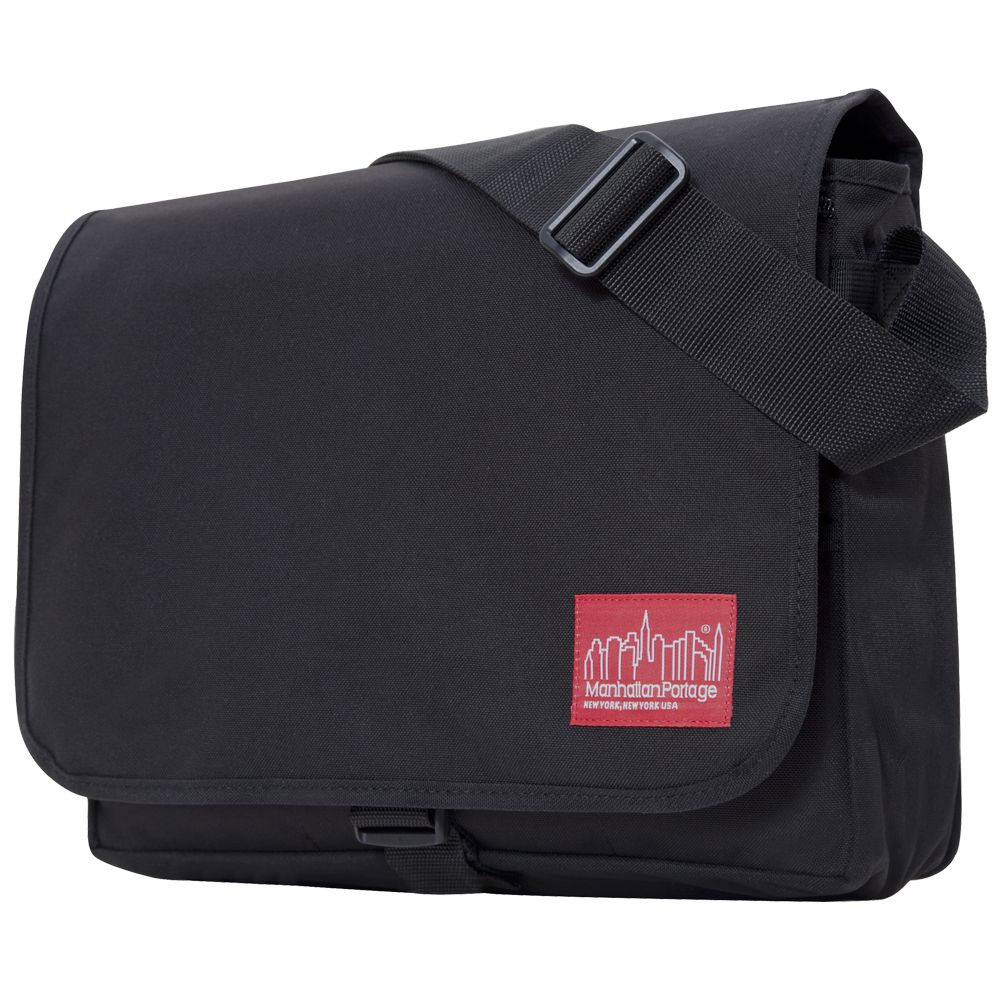
The only screwdrivers I bothered with was Wiha precision screwdrivers. I tried all of them and Wiha were consistently the best by a mile. Wiha has a list of screwdrivers by Apple model available here: https://www.wihatools.com/blogs/articles/apple-and-wiha-tools
Macs of this period booted off of FireWire, so that's what I had with me. FireWire 800 LaCie drives were the standard issue drives in the field.
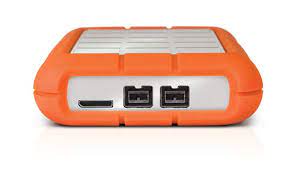
You'd partition it to have a series of OS X Installers on there (so you could restore the customer back to what they had before) along with a few bootable installs of OS X. These were where you'd run your diagnostic software. The most commonly used ones were as follows:
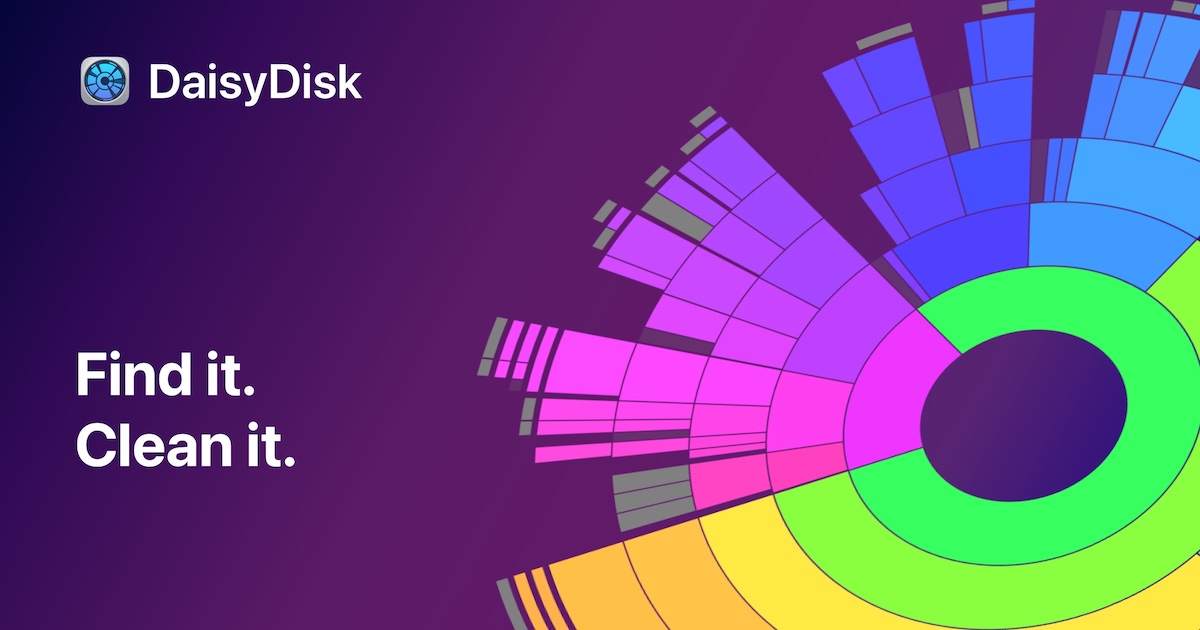

https://www.cleverfiles.com/pro.html
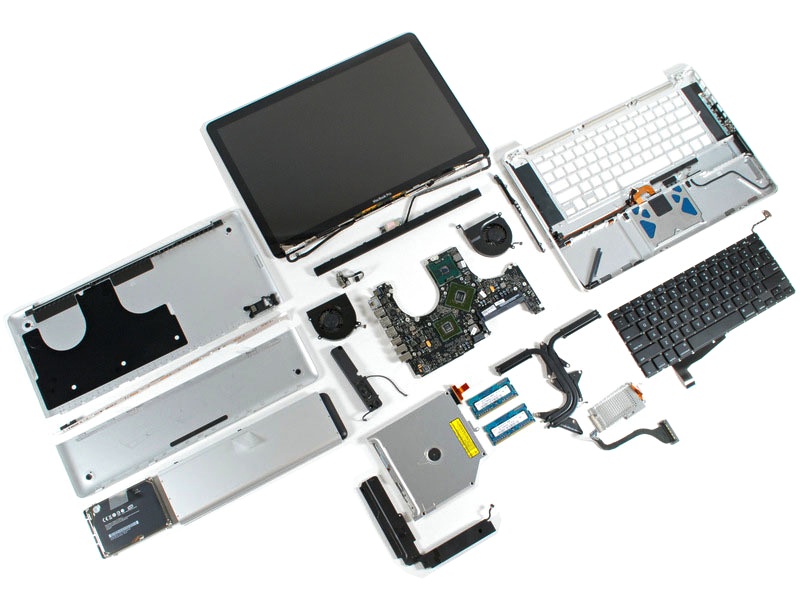
9/11 Truther
One of my first calls was for a Mac Pro at a private residence. It was a logic board, which means the motherboard of the Mac. I wasn't thrilled, because removing and replacing the Mac Pro logic board was a time-consuming repair that required a lot of light. Instead of a clean workspace with bright lights I got a guy who would not let me go until I had watched how 9/11 was an inside job.
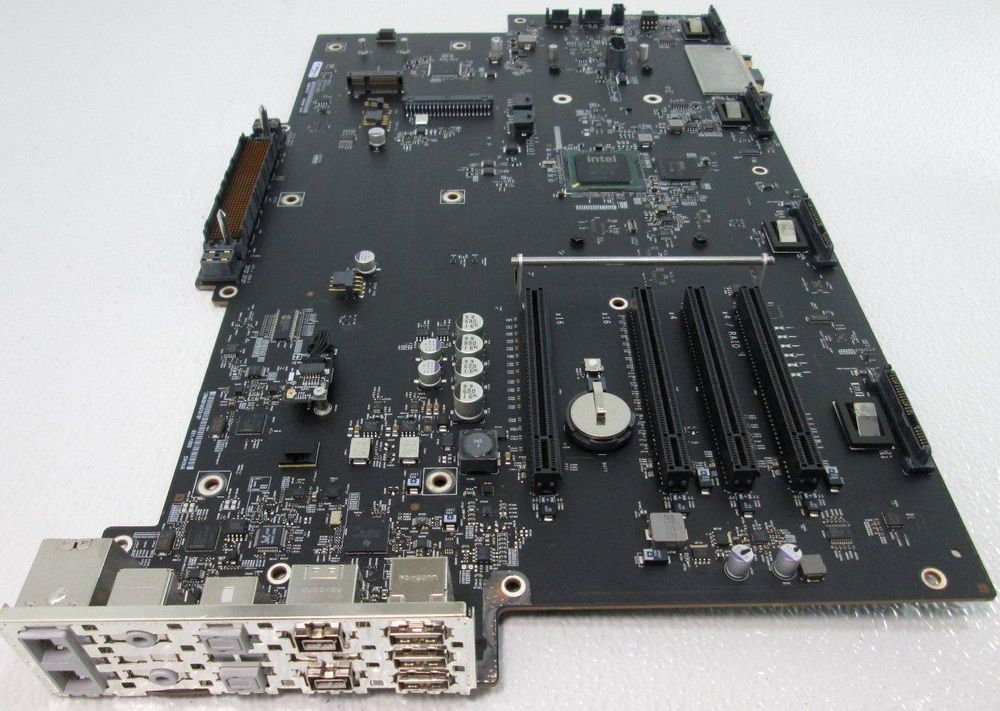
"Look, you don't really think the towers were blown up by planes do you?" he said as he dug around this giant stack of papers to find...presumably some sort of Apple-related document. I had told him that I had everything I needed, but that I had a tight deadline and needed to start right now. "Sure, but I'll put the video on in the background and you can just listen to it while you work." So while I took a Mac Pro down to the studs and rebuilt it, this poorly narrated video explained how it was the CIA behind 9/11.
His office or, "command center", looked like a set of the X-Files. There were folders and scraps of paper everywhere along with photos of buildings, planes, random men wearing sunglasses. I think it was supposed to come across as if he was doing an investigation, but it reminded me more of a neighbor who struggled with hoarding. If there was an organizational system, I couldn't figure it out. Why was this person so willing to dedicate an large portion of their house to "solving a mystery" the rest of us had long since moved on from?
The Mac Pro answered all my questions when it booted up. The desktop was full of videos he had edited of 9/11 truth material along with website assets for where he sold these videos. This guy wasn't just a believer, he produced the stuff. When I finished, we had to run a diagnostic test to basically confirm the thing still worked as well as move the serial number onto the logic board. When it cleared diagnostic I took off, thanking him for his time and wishing him a nice day. He looked devastated and asked if I wanted to go grab a drink at the bar and continue our conversation. I declined, jogging to the L.
The Doctors
One of the rich folks I was sent out to lived in one of those short, super expensive buildings on Lake Shore Drive. For those unfamiliar, these shorter buildings facing the water in Chicago are often divided into a few large houses. Basically you pass through an army of doorman, get shown into an elevator that opens into the persons house. That was, if you could get through the doormen.
The staff in rich peoples houses want to immediately establish with any contractor coming into the home that they're superior to you. This happened to me constantly, from personal assistants to doormen, maids, nannies, etc. Doormen in particular liked to make a big deal of demonstrating that they could stop me from going up. This one stuck out because he made me take the freight elevator, letting me know "the main elevator is for people who live here and people who work here". I muttered about how I was also working there and he rolled his eyes and called me an asshole.
On another visit to a different building I had a doorman physically threaten "to throw me down" if I tried to get on the elevator. The reason was all contractors had to have insurance registered with the building before they did work there, even though I wasn't.....removing wires from the wall. The owner came down and explained that I wasn't going to do any work, I was just "a friend visiting". I felt bad for the doorman in that moment, in a dumb hat and ill-fitting jacket with his brittle authority shattered.
So I took the freight elevator up, getting let into what I would come to see as "the rich persons template home". My time going into rich peoples houses were always disappointing, as they are often a collection of nice items sort of strewn around. I was shown by the husband into the library, a beautiful room full of books with what I (assumed) were prints of paintings in nice frames leaning against the bookshelves. There was an iMac with a dead hard drive, which is an easy repair.
The process for fixing a hard drive was "boot to DiskWarrior, attempt to fix disk, have it fail, swap the drive". Even if DiskWarrior fixed the Mac and it booted, I would still swap the drive (why not and it's what I was paid to do) but then I didn't have to have the talk. This is where I would need to basically sit someone down and tell them their data was gone. "What about my taxes?!?" I would shake my head sadly. Thankfully this time the drive was still functional so I could copy the data over with a SATA to USB adapter.
As I reinstalled OS X, I walked around the room and looked at the books. I realized they were old, really old and the paintings on the floor were not prints. There were sketches by Picasso, other names I had heard in passing through going through art museums. When he came back in, I asked why there was a lot of art. "Oh sure, my dads, his big collection, I'm going to hang it up once we get settled." He, like his wife, didn't really acknowledge my presence unless I directed a question right at him. I started to google some of the books, my eyes getting wide. There was millions of dollars in this room gathering dust. He never made eye contact with me during this period and quickly left the room.
This seems strange but was really common among these clients. I truly think for many of the C-level type people whose house I went to, they didn't really even see me. I had people turn the lights off in rooms I was in, forget I was there and leave (while arming the security system). For whatever reason I instantly became part of the furniture. When I went to the kitchen for a drink of water, the maid let me know that they have lived there for coming up on 5 years.
This was surprising to me because the apartment looked like they had moved in two weeks ago. There were still boxes on the floor, a tv sitting on the windowsill and what I would come to understand was a "prop fridge". It had bottled water, a single bottle of expensive champagne, juices, fruit and often some sort of energy drink. No leftovers, everything gets swapped out before it goes bad and gets replaced. "They're always at work" she explained, grabbing her bag and offering to let me out before she locked up. They were both specialist doctors and this was apparently where they recharged their batteries.
After the first AppleCare Dispatch visit they would call me back for years to fix random problems. I don't think either of them ever learned my name.
HARPO Studio
I was once called to fix a "high profile" computer at HARPO studios in Chicago. This was where they filmed the Oprah Winfrey Show, which I obviously knew of the existence of but had never watched. Often these celebrity calls went to me, likely because I didn't care and didn't particularly want them. I was directed to park across the street and told even though the signs said "no parking" that they had a "deal with the city".
This repair was suspicious and I got the sense that someone had name dropped Oprah to maybe get it done. AppleCare rarely sent me multiple parts unless the case was unusual or the person had gotten escalated through the system. If you emailed Steve Jobs back in the day and his staff approved a repair, it attached a special code to the serial number that allowed us to order effectively unlimited items against the serial number. However with the rare "celebrity" case, we would often find AppleCare did the same thing, throwing parts at us to make the problem go away.
The back area of HARPO was busy, with what seemed like an almost exclusively female staff. "Look it's important that if you see Oprah, you act normally, please don't ask her for an autograph or a photo". I nodded, only somewhat paying attention because never in a million years would I do that. This office felt like the set of The West Wing, with people constantly walking and talking along with a lot of hand motions. My guide led me to a back office with a desk on one side and a long table full of papers and folders. The woman told me to "fix the iMac" and left the room.
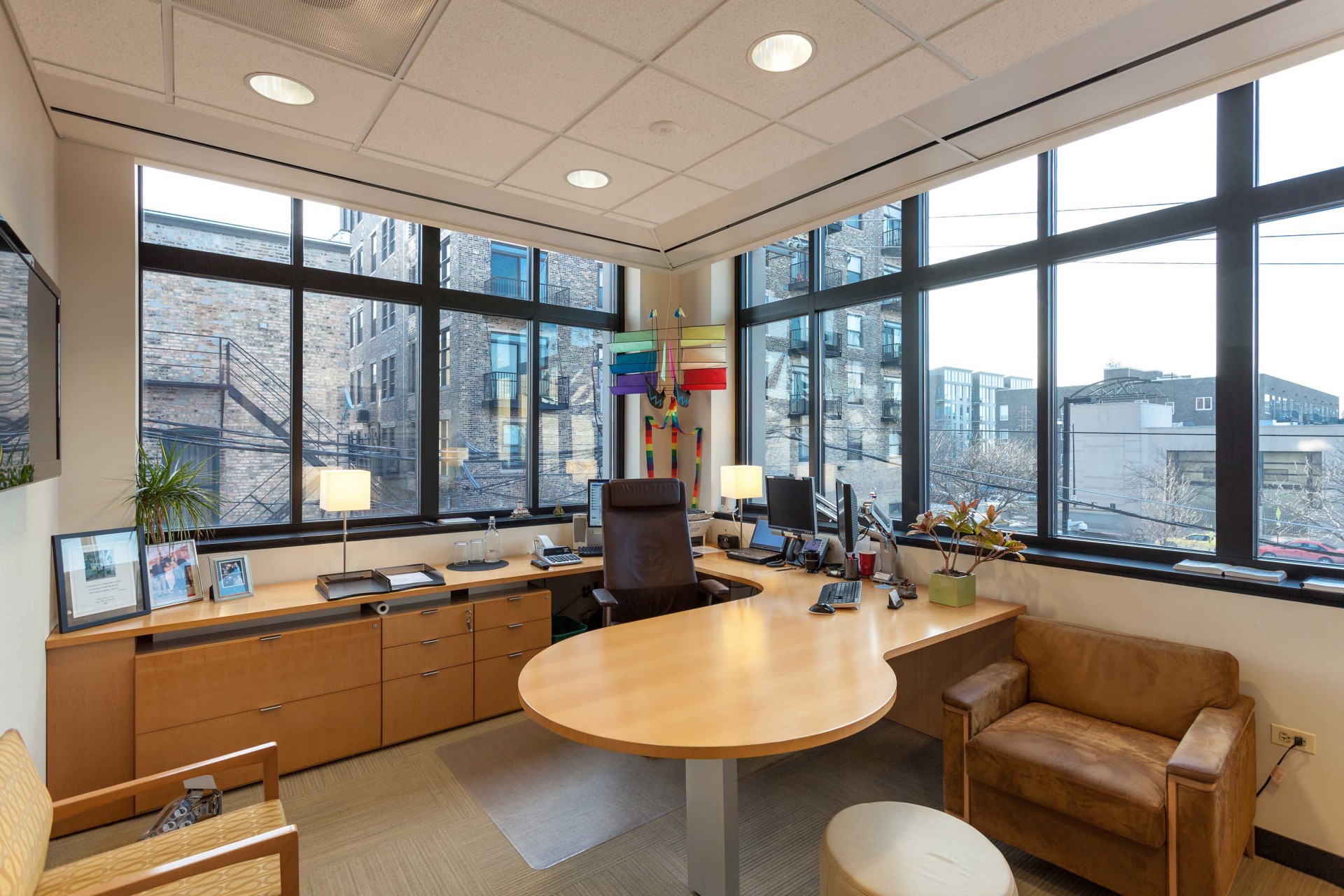
I swapped the iMac hard drive and screen, along with the memory and wifi then dived under the desk the second Oprah walked in. The woman and Oprah had a conversation about scheduling someone at a farm, or how shooting at a farm was going and then she was gone. When I popped my head up, the woman looked at me and was like "can you believe you got to meet Oprah?" She had a big smile, like she had given me the chance of a lifetime.
The bummer about the aluminum iMac repairs is you have to take the entire screen off to get anything done. This meant I couldn't just run away and hide my shame after effectively diving under a table to escape Oprah, a woman who I am certain couldn't have cared less what came out of my mouth. I could have said "I love to eat cheese sometimes" and she would have nodded and left the room.

So you have to pop the glass off (with suction cups, not your hands like a psycho as shown above), then unscrew and remove the LCD and then finally you get access to the actual components. Any dust that got on the LCD would stick and annoy people, so you had to try and keep it as clean as possible while moving quickly to get the swap done. The nightmare was breaking the thick cables that connected the screen to the logic board, something I did once and required a late night trip to an electronics repair guy who got me sorted out with a soldering iron.
The back alley electronics repair guy is the dark secret of the Dispatch world. If you messed up a part, pulled a cable or broke a connector, Apple could ask you to pay for that part. The Apple list price for parts were hilariously overpriced. Logic boards were like $700-$900, each stick of RAM was like $90 for ones you could buy on crucial for $25. This could destroy your pay for that month, so you'd end up going to Al, who ran basically a "solder Apple stuff back together" business in his garage. He wore overalls and talked a lot about old airplanes, which you'd need to endure in order to get the part fixed. Then I'd try to get the part swapped and just pray that the thing would turn on long enough for you to get off the property. Ironically his parts often lasted longer than the official Apple refurbished parts.
After I hid under the desk deliberately, I lied for years afterwards, telling people I didn't have time to say hi. In reality my mind completely blanked when she walked in. I stayed under the desk because I was nervous that everyone was going to look at me to be like "I loved when you did X" and my brain couldn't form a single memory of anything Oprah had ever done. I remembered Tom Cruise jumping on a couch but I couldn't recall if this was a good thing or a bad thing when it happened.
Oh and the car that I parked in the area the city didn't enforce? It had a parking ticket, which was great because I had borrowed the car. Most of the payment from my brush with celebrity went to the ticket and a tank of gas.
Brownstone Moms
One of the most common calls I got was to rich peoples houses in Lincoln Park, Streeterville, Old Town and a few other wealthy neighborhoods. They often live in distinct brownstone houses with small yards with a "public" entrance in the front, a family entrance on the side and then a staff entrance through the back or in the basement.
These houses were owned by some of the richest people in Chicago. The houses themselves were beautiful, but they don't operate like normal houses. Mostly they were run by the wives, who often had their own personal assistants. It was an endless sea of contractors coming in and out, coordinated by the mom and sometimes the nanny.
Once I was there, they'd pay me to do whatever random technical tasks existed outside of the initial repair. I typically didn't mind since I was pretty fast at the initial repair and the other stuff was easy, mostly setting up printers or routers. The sense I got was if the household made the AppleCare folks life a living hell, I would get sent out to make the problem disappear. These people often had extremely high expectations of customer service, which could be difficult at times.
There was a whole ecosystem of these small companies I started to run into more and more. They seemed to specialize in catering to rich people, providing tutoring services, in-house chefs, drivers, security and every other service under the sun. One of the AV installation companies and I worked together off the books after-hours to set up Apple TVs and Mac Minis as the digital media hubs in a lot of these houses. They'd pay me to set up 200 iPods as party favors or wire an iPad into every room.
Often I'd show up only to tell them their hard drive was dead and everything was gone. This was just how things worked before iCloud Photos, nobody kept backups and everything was constantly lost forever. Here they would often threaten or plead with me, sometimes insinuating they "knew people" at Apple or could get me fired. Jokes on you people, I don't even know people at Apple was often what ran through my head. Threats quickly lost their power when you realized nobody at any point had asked your name or any information about yourself. It's hard to threaten an anonymous person.
The golden rule that every single one of these assistants warned me about was not to bother the husband when he gets home. Typically these CEO-types would come in, say a few words to their kids and then retreat to their own area of the house. These were often TV rooms or home theaters, elaborate set pieces with $100,000+ of AV equipment in there that was treated like it was a secret lair of the house. To be clear, none of these men ever cared at all that I was there. They didn't seem to care that anybody was there, often barely acknowledging their wives even though an immense amount of work had gone into preparing for his return.
As smartphones became more of a thing, the number of "please spy on my teen" requests exploded. These varied from installing basically spyware on their kids laptops to attempting to install early MDM software on the kids iPhones. I was always uncomfortable with these jobs, in large part because the teens were extremely mean to me. One girl waited until her mom left the room to casually turn to me and say "I will pay you $500 to lie to my mom and say you set this up".
I was offended that this 15 year old thought she could buy me, in large part because she was correct. I took the $500 and told the mom the tracking software was all set up. She nodded and told me she would check that it was working and "call me back if it wasn't". I knew she was never going to check, so that part didn't spook me. I just hoped the kid didn't get kidnapped or something and I would end up on the evening news. But I was also a little short that month for rent so what can you do.
Tip for anyone reading this looking to get into this rich person Mac business
So the short answer is Time Machine is how you get paid month after month. Nobody checks Time Machine or pays attention to the "days since" notification. I wrote an AppleScript back in the day to alert you to Time Machine failures through email, but there is an app now that does the same thing: https://tmnotifier.com/
Basically when the backups fail, you schedule a visit and fix the problem. When they start to run out of space, you buy a new bigger drive. Then you backup the Time Machine to some sort of encrypted external location so when the drive (inevitably) gets stolen you can restore the files. The reason they keep paying you is you'll get a call at some point to come to the house at a weird hour and recover a PDF or a school assignment. That one call is how you get permanent standing appointments.
Nobody will ever ask you how it works, so just find the system you like best and do that. I preferred local Time Machine over something like remote backup only because you'll be sitting there until the entire restore is done and nothing beats local. Executives will often fill the "family computer" with secret corporate documents they needed printed off, so be careful with these backups. Encrypt, encrypt, encrypt then encrypt again. Don't bother explaining how the encryption works, just design the system with the assumption that someone will at some point put a CSV with your social security number onto this fun family iMac covered in dinosaur stickers.
Robbed for Broken Parts
A common customer for repairs would be schools, who would work with Apple to open a case for 100 laptops or 20 iMacs at a time. I liked these "mass repair" days, typically because the IT department for Chicago Public Schools would set us up with a nice clean area to work and I could just listen to a podcast and swap hard drives or replace top cases. However this mass repair was in one of Chicago's rougher neighborhoods.
Personal safety was a common topic among the dispatch folks when we would get together for a pizza and a beer. Everyone had bizarre stories but I was the only one not working out of my car. The general sense among the community was it was not an "if" but a "when" until you were robbed. Typically my rule was if I started to get nervous I'd "call back to the office" to check if a part had arrived. Often this would calm people down, reminding them that people knew where I was. Everyone had a story of getting followed back to their car and I had been followed back to the train once or twice.
On this trip though everything went wrong that could go wrong. My phone, the HTC Dream running v1 of Android had decided to effectively "stop phoning". It was still on but decided we were not, in fact, in the middle of a large city. I was instead in a remote forest miles away from a cell tower. I got to the school later than I wanted to be there, showing up at noon. When I tried to push it and come back the next day the staff let me know the janitors knew I would be there and would let me out.
So after replacing a ton of various Mac parts I walked out with boxes of broken parts in my bag and a bunch in an iMac box that someone had given me. My plan was I would head back home, get them checked in and labeled and then drop them off at a FedEx store. When I got out and realized it was dark, I started to accept something bad was likely about to happen to me. Live in a city for any amount of time and you'll start to develop a subconscious odds calculator. The closing line on this wasn't looking great.
Sure enough while waiting for the bus, I was approached by a man who made it clear he wanted the boxes. He didn't have a weapon but started to go on about "kicking the shit" out of me and I figured that was good enough for me. He clearly thought there was an iMac in the box and I didn't want to be here when he realized that wasn't true. I handed over my big pile of broken parts and sprinted to the bus that was just pulling up, begging the driver to keep driving. As a CTA bus driver, he had of course witnessed every possible horror a human can inflict on another human and was entirely unphased by my outburst. "Sit down or get off the bus".
When I got home I opened a chat with as Apple rep who seemed unsure of what to do. I asked if they wanted me to go to the police and the rep said if I wanted to I could, but after "talking to some people on this side" they would just mark the parts as lost in transit and it wouldn't knock my metrics. I thanked them and didn't think much more of the incident until weeks later when someone from Apple mailed me a small Apple notebook.
They never directly addressed the incident (truly the notebook might be unrelated) but I always thought the timing was funny. Get robbed, get a notebook. I still have the notebook.
Questions/comments/concerns? Find me on Mastodon: https://c.im/@matdevdug

